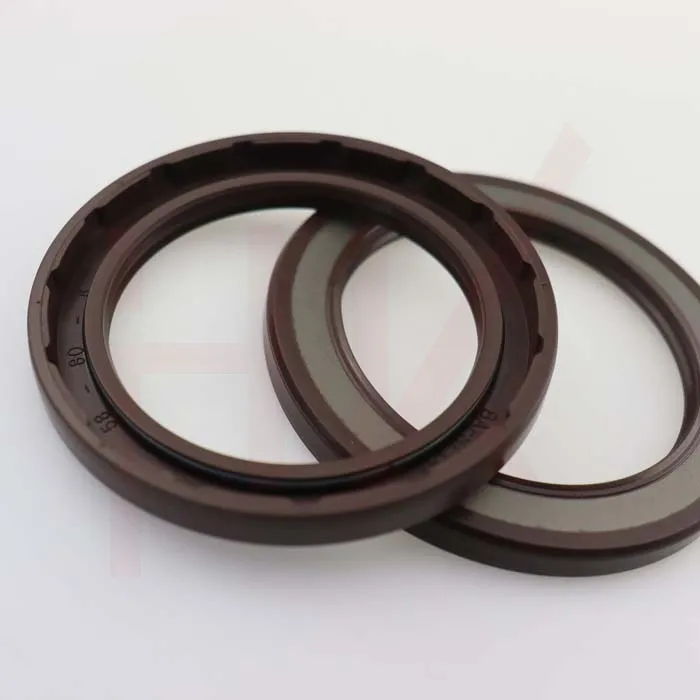ธ.ค. . 12, 2024 04:07 Back to list
hydraulic piston oil seals
Understanding Hydraulic Piston Oil Seals
Hydraulic systems are integral to many industrial and mechanical applications, providing efficient power transmission through the use of pressurized fluids. At the heart of these systems is the hydraulic piston, which converts hydraulic energy into mechanical work. However, to ensure the efficient operation of hydraulic pistons, oil seals play a critical role. In this article, we will explore the function, types, materials, and benefits of hydraulic piston oil seals.
Function of Hydraulic Piston Oil Seals
The primary role of hydraulic piston oil seals is to prevent fluid leakage and to protect against contaminants entering the hydraulic system. By maintaining a proper seal around the piston, these seals retain hydraulic fluid under high pressure while ensuring that external debris, dirt, and moisture do not infiltrate the hydraulic cylinder. This sealing capability is crucial for maintaining system efficiency, enhancing performance, and prolonging the lifespan of hydraulic components.
Moreover, oil seals facilitate smooth movement of the piston by reducing friction between the piston and cylinder walls. This not only enhances operational efficiency but also minimizes wear and tear on both the seal and the piston itself.
Types of Hydraulic Piston Oil Seals
Hydraulic piston oil seals come in various designs and materials to cater to specific application requirements. The most common types include
1. Static Seals These seals are used in stationary applications where there is no relative motion between the surfaces. They are often employed in end face configurations to prevent fluid leakage.
2. Dynamic Seals These seals are designed for applications involving relative motion, particularly in hydraulic cylinders. Dynamic seals adapt to variations in pressure and speed, making them essential for hydraulic pistons.
3. U-Cups Shaped like the letter U, U-cup seals are commonly used in hydraulic cylinders for their ability to maintain a tight seal during operation while allowing for minimal friction.
4. O-Rings These circular seals are versatile and can be used in various hydraulic applications. O-rings provide a simple, effective sealing solution, especially in static and low-pressure dynamic conditions.
hydraulic piston oil seals

Materials Used for Hydraulic Piston Oil Seals
The materials used in the manufacturing of hydraulic piston oil seals are crucial to their performance and durability. Common materials include
- Nitrile Rubber (NBR) Known for its excellent resistance to oil and fuel, NBR is commonly used for static and dynamic seals.
- Polyurethane (PU) This material is known for its high wear resistance and resilience, making it an ideal choice for seals subjected to extreme conditions.
- Fluoroelastomer (FKM) FKM seals are resistant to high temperatures and aggressive chemicals, making them suitable for demanding applications.
- PTFE (Polytetrafluoroethylene) PTFE is often used in high-temperature applications and provides excellent chemical resistance and low friction.
Benefits of High-Quality Hydraulic Piston Oil Seals
Investing in high-quality hydraulic piston oil seals can yield numerous benefits. First and foremost, they ensure reliable and continuous operation of hydraulic systems. By minimizing the risk of fluid leakage and contamination, these seals help maintain system pressure and efficiency, which translates to better performance and reduced operational costs.
Furthermore, high-quality seals can significantly extend the service life of hydraulic components. With reduced friction and wear, both the piston and the cylinder can operate smoothly for longer periods, reducing the frequency of maintenance and replacements.
In conclusion, hydraulic piston oil seals are vital components that ensure the efficiency and reliability of hydraulic systems. By understanding their functions, types, materials, and the advantages of using high-quality seals, industries can optimize their hydraulic operations and enhance overall productivity. As hydraulic technology continues to evolve, the role of these seals will remain pivotal in driving innovation and efficiency across various sectors.
-
Understanding Oil Seals and Their Role in Machinery Efficiency
NewsApr.08,2025
-
The Importance of Seals in Agricultural and Hydraulic Systems
NewsApr.08,2025
-
Essential Guide to Seal Kits for Efficient Machinery Maintenance
NewsApr.08,2025
-
Choosing the Right TCV Oil Seal for Your Machinery
NewsApr.08,2025
-
Choosing the Right Hydraulic Oil Seals for Reliable Performance
NewsApr.08,2025
-
A Comprehensive Guide to Oil Seals and Their Applications
NewsApr.08,2025
-
The Importance of High-Quality Oil Seals in Industrial Applications
NewsMar.26,2025
Products categories
















